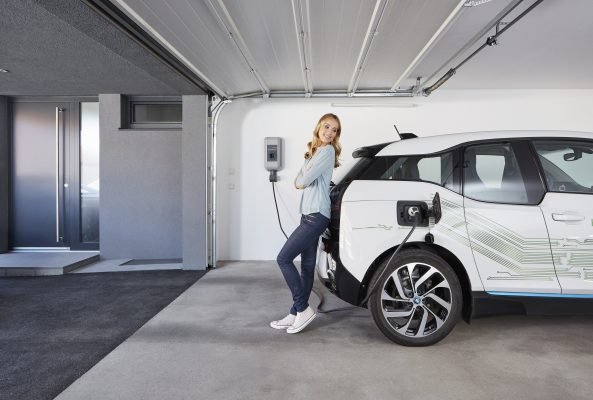Why should you buy EV charging station?
Owning electric vehicle is quite different experience compared to owning internal combustion car (ICE). Due to limited range and the fact that it is not easy and cheap to use fast charging station one should consider installing personal charging station in his garage. In fact in most of EU countries it is quite expensive to use public EV charging stations. The price of electricity @public charger can be with 300-400% mark-up compared to electricity price you pay at home (f.e. in Norway you pay 0.12 eur/kwh at home and almost 0.5eur/kwh @ public charger). So your private EV charging station will pay off very soon. But more importantly you will reduce your range anxiety as you will make sure that every morning you have nearly fully charged battery in your car (please note that you should charge only up to 80% of your battery capacity to minimise long term battery degradation).
Volts, amps, kilowatts and phases
If speaking generally, higher volts, amps, or kilowatts will mean more electricity. However when calculating EV charging station cost one should understand the differences between these terms.
Explanation – It is best to think about volts, amps, and kilowatts as if you were moving water instead of electricity:
• Volts in electricity world are like the water pressure in pipe. A Level 2 charging station will use 220-240 volt outlet (like the outlet for your fridge).
• Amps measure flow rate. You can think about diameter of water pipe and the volume of water that comes out of a pipe at a given moment. Most EV charging stations provide 16 or 32 amps of electricity.
• Kilowatts measure how much power you get when you multiply the volts (pressure) and the amps (volume).
• Phases – The single-phase power supply has one distinct wave cycle whereas; three phase has three distinct wave cycles. Single phase requires the single wire to connect the circuit whereas; 3-phase needs 3-wires. The voltage of the single phase is 230V, whereas three phase voltage is 415V.
For example if you choose 16A, 220V x three phase charger it will deliver 16x220x3=10,56kWh per hour compared to 7kwh which can be delivered per hour from ev charging station with 32A and 220V (one phase). Please note that UK electric grid does not support 3 phase electricity.
• All Level 2 charging stations use 220 – 240 volts, thus most important parameter is amps and phases.

CHRG Network’s advise
In case you are going to use charging station for your own means a one phase 7kw (32A) charging station will suffice. If you park your EV 10 hours during night it will fill up even Tesla battery.
However, in case you consider to share your charging station with neighbour or other EV drivers you should not settle for less than 11kw. Or even better – choose 22kw charging station. It will deliver more electricity during same time, thus will ensure better profitability for your charging spot.
Price of EV charging stations
Ev charging station price can vary depending on built quality, power output, functionalities etc.
At about 600eur is the price for the cheapest and most simple model. However, models with 3G, 22kw output, display and other additional features can increase the cost to almost 1500eur. You also should have in mind the cost of installation. Depending on the requirements for your installation and rate for electrician service in your area, installation can start from a few hundred euros.
Luckily, powering up with a charging station is cheaper than buying traditional fuel. In fact, you can save several thousand euro a year driving an EV. Over time you will be able to make up the cost of the charging station, especially if you combine your EV with rooftop solar.

 Dansk
Dansk